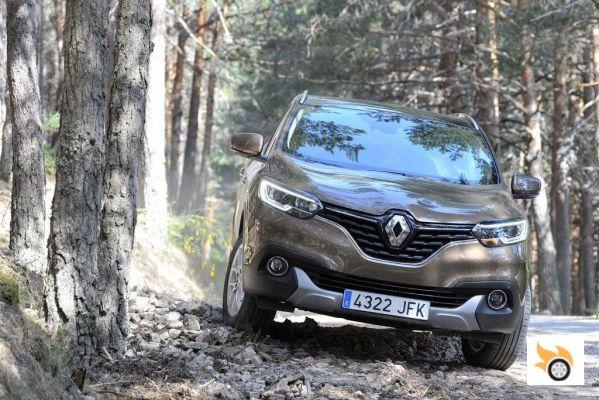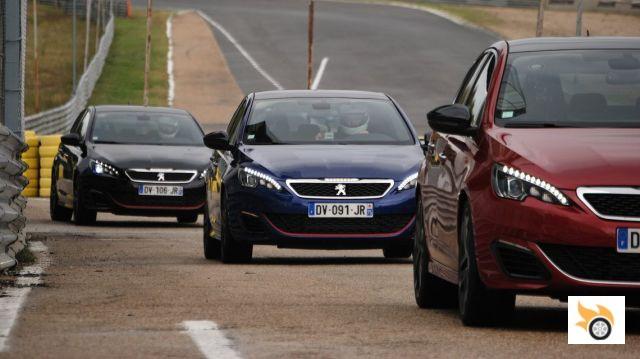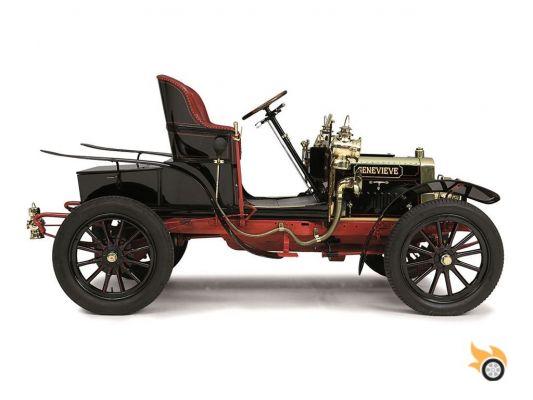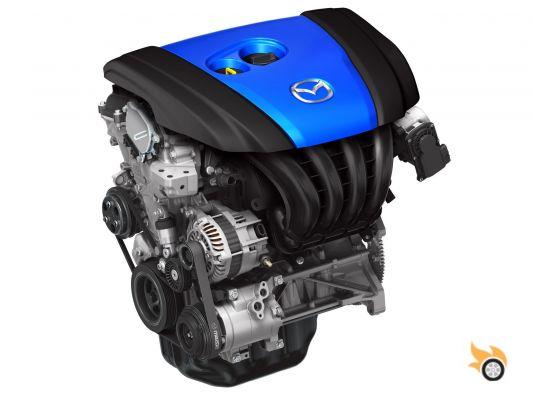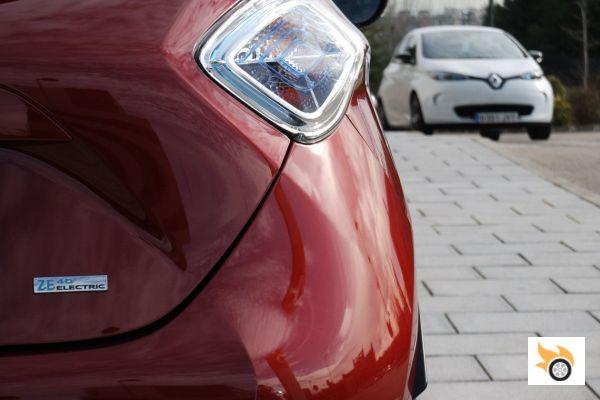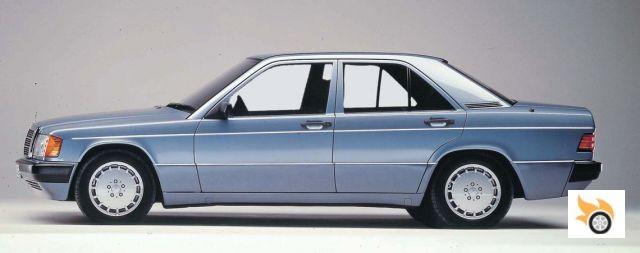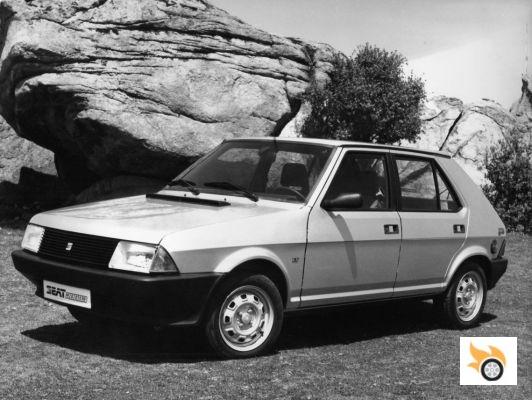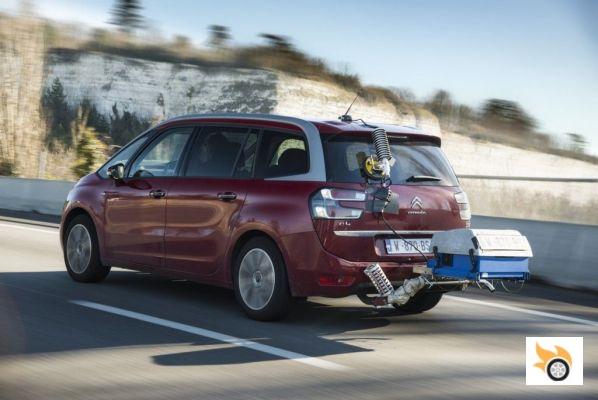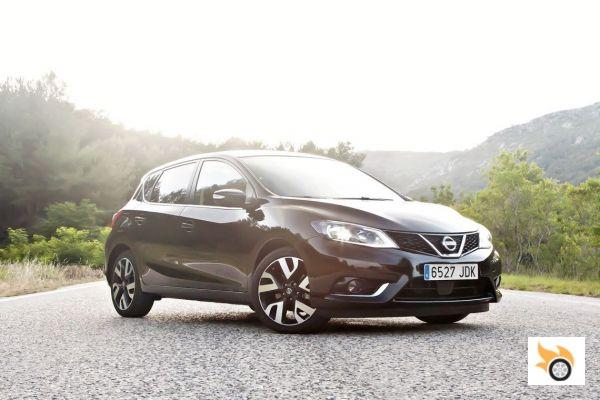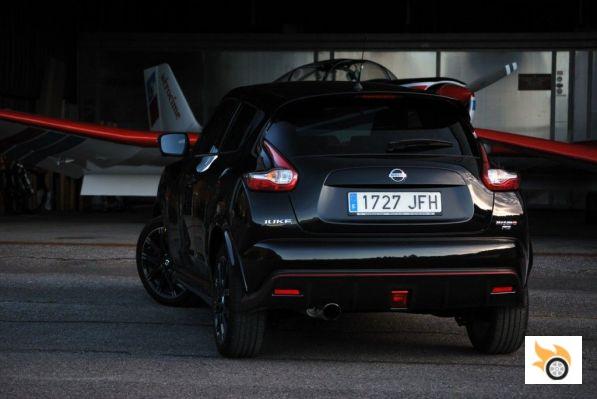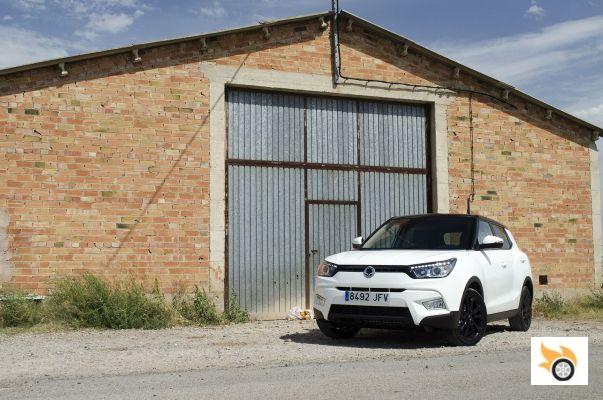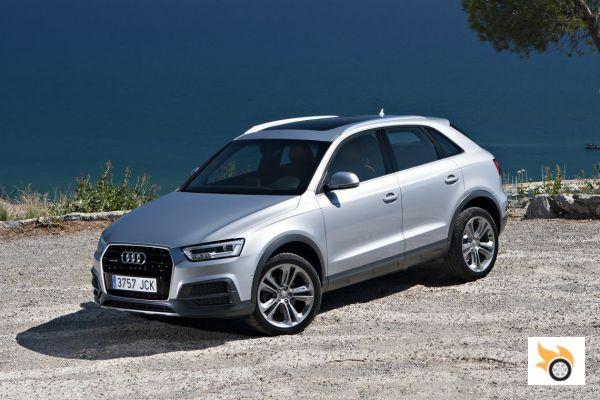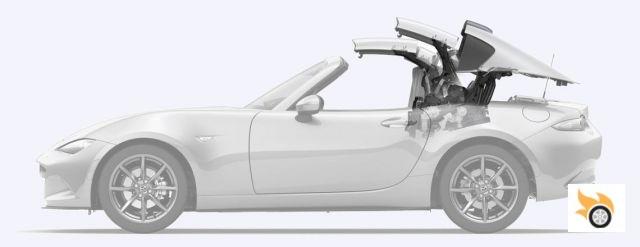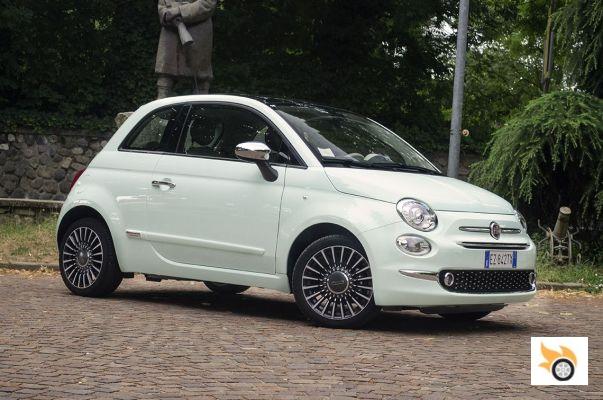If we pull the newspaper archive we will see that these headlines have absolutely nothing new, and the average age of the Spanish car fleet is already over 10 years old for some time: economic crisis they call it. The DGT is worried that the accident rate has been falling for more than 10 years, and the industry is worried about increasing sales. Just as it sounds.
I'm not going to be the one to deny that there have been advances in active and passive safety in the last few years, and that the evolution of car safety has been barbaric. That doesn't mean that everyone who drives a car manufactured before 2005 is a potential corpse, and the same goes for its occupants. This risk has to be specified with figures.
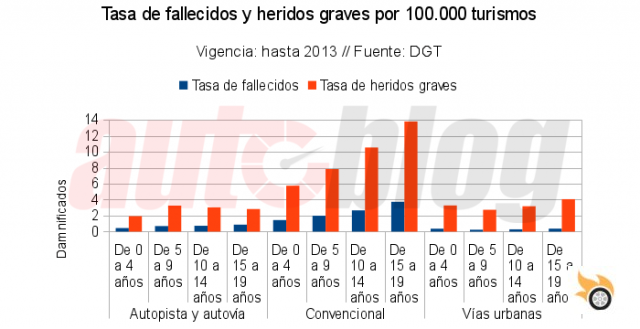
We have to differentiate between an absolute magnitude (total) and a relative magnitude (all things being equal).
According to DGT statistics, the age of the vehicle is a determining factor when we are talking about an average age of over 10 years, but only when we are talking about secondary roads. If we refer to urban roads and motorways, the problem is not such, because the accident rates are very similar to those of new cars.
I have already talked about this on more than one occasion, especially in the article "Are cars more than 10-15 years old a threat? If we look at the DGT's own data, their danger is very relative. After analyzing several sources of data, I can not conclude that these cars are neither a threat to road safety, nor against the environment, in absolute terms.
Of course, watching the news sometimes, I don't get that impression. I perceive very little critical character in the press when they talk about this issue, releasing the data provided by the press agency or communication office of the day. I think it's great that these data are given, but they have to be contextualized. It's like saying that unemployment is falling, if we ignore the data on how many people have changed the INEM for Madrid Adolfo Suárez Barajas Airport. Can you see?
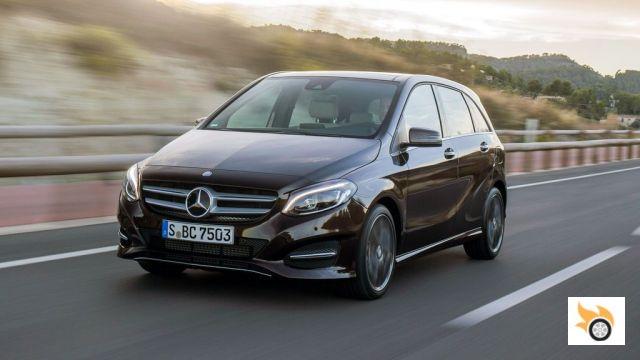
A car from 10 years ago, when it was new, is not as safe as a current one, generally. If on top of those 10 years the maintenance has not been adequate, is when the difference becomes a big problem, and when we can speak, properly, of dangerous cars. Many times I ask myself, what the hell is the ITV for? Please, someone give me a good reason, apart from collecting fees and giving work to mechanics and engineers.
Whose fault is it that there are cars driving around in a bad state?
Cars need to have more done to them than just their oil and filters changed. Eventually they need a change of tyres, brakes, shock absorbers, parts that get too much slack, etc. If the overhaul was really serious, and they looked at what they should be looking at, and not at spoilers or other things, there wouldn't be so many cars circulating in bad conditions. They are accomplices.
If the DGT really wants old cars to stop being a problem, it's very easy. Instead of so much radar, a wild campaign of revision of the state of the ITV, so that no one dares to take a car in bad condition if it is not destined directly to a workshop to be put solution. Sending letters to car owners, telling them the obvious (that a new car is better) does not seem to me the best solution, far from it.
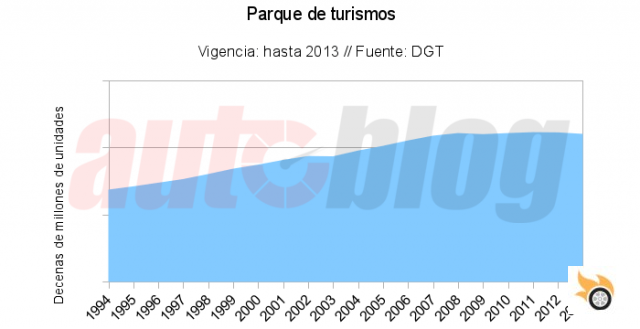
In another article, I collected data from owners of cars 25 years old or older, i.e. classics. According to the authorities, they are a cancer for road safety and the environment: they have no ABS, no catalytic converter, no airbags, no electronic injection, no particulate filters, no ESP... And then we look at the data and, given the very few that circulate, their danger is very, very relative. It is not to provoke a social alert.
Spaniards like new cars, of course we do, and when things are going well, we do not die of illusion to continue keeping old problematic cars. Just look at car sales in the years prior to the bursting of the housing bubble. The age of the Spanish fleet was then in line with that of our European neighbours.
The average age of the car fleet is a direct consequence of the progressive impoverishment of the Spanish "middle class".
The problem is called wage devaluation, you can read the latest data in El País. In 2014 a Spaniard earned 27.3% less than an average European, 15.7 euros an hour. The vaunted Spanish miracle of "economic recovery" is underpinned by lower wages, so it is quite understandable that the car fleet is barely growing since 2008, and that the average age of the fleet continues to increase, despite the various PIVE plans, which have renewed about 400,000 cars.
Wage devaluation in Spain. Worst paid jobs for young people: http://t.co/HSUDGHL1uJ pic.twitter.com/DRcFFUUh5T
- El País Infografía (@elpais_info) March 22, 2015.
On the latest study by Fundación MAPFRE.
An interesting report has just been published that relates the latest advances in safety with their availability in the ranges, and their possible influence on traffic accidents. They start from this premise: "it would be theoretically possible to reduce passenger car occupant fatalities by half if all vehicles were new".
But we all know that it is not that simple, and that it is not possible, especially in the current economic context. Moreover, the effectiveness of safety measures depends on several factors, such as not being deactivated, or being used correctly. Moreover, not all systems - such as lane departure warning systems - are equally effective in all models.
The report is very interesting and worth a look. They say that safety measures should be more affordable and that the customer should prefer them to aesthetic or comfort elements. Here they have just hit a rock called consumer mentality, or that in some brands all the aids are only linked to the most luxurious equipment.
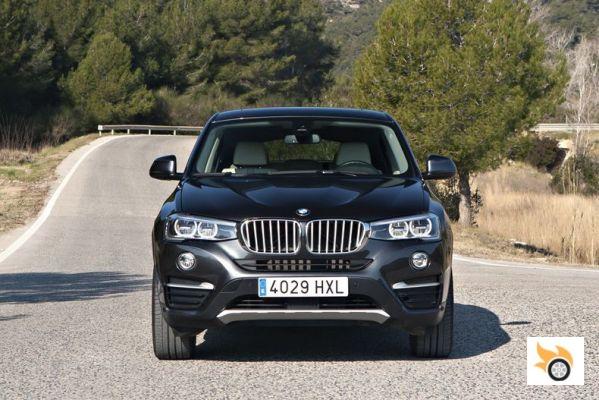
When I drive on my daily commute, on high capacity roads in Madrid, the average age of most of the cars on the road is well under 10 years old on average, and I can hardly see any cars over 10 years old. I know that this is statistically irrelevant (my personal experience), but I bet my bearings that the very dangerous "old cars" move very little and the problem is not so big in absolute terms.
When they show me on the news about accidents involving old cars, and the state they've been left in, I don't know if it would have helped much if the crash had been in a late model. Also, the EuroNCAP consortium tests are sometimes a bit overrated, remember that they are done at 64 km/h maximum. If all cars were five stars, it would be better, yes, but that much?
When they show me cars crashed in the news, it is obvious that they have been crashed at much more, in EuroNCAP they were not so bad. Am I saying then that everything is solved by inflating the secondary roads with radars? No, a radar can only prevent accidents - sorry, reduce them - in the small stretch where it can give us a penalty, and if it is well visible for drivers to slow down. If not, its effectiveness is similar to that of putting gamusinos to control traffic: nobody is going to perceive their presence, I mean nobody adult. And here you play "Money", by Pink Floid, a great song.
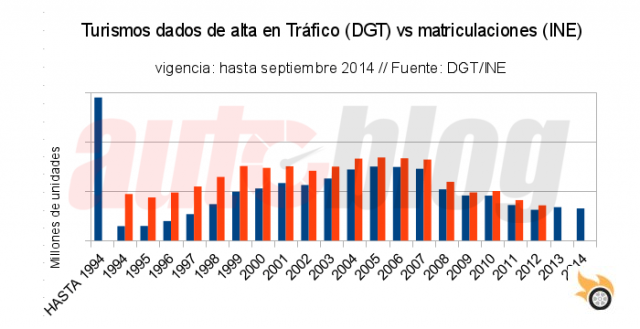
Look at the graph, the orange series represents registrations of a year, and the blue series represents those who are registered in the same year. Changing the subject, according to the report "Vehicle age and accident rate in Spain", made in 2013 by RACE, ANFAC and Bosch, interesting data comes out:
- The average age of the vehicle fleet is 10.3 years.
- In 2011 there were 44,659 accidents with victims, with vehicles less than 10 years old. In those older than 10 years, there were less than half, 20,750 accidents.
- In 2009 there were 52,690 accidents with victims, involving vehicles less than 10 years old. In those over 10 years old, there were 16,808 accidents, less than a third.
Indeed, the gap is widening in favour of new cars, but while the old ones are a problem in relative terms (given the same number of vehicles) the semi-new and new ones are a bigger problem in absolute terms. Is this serious? The report doesn't miss the obvious conclusion that state-of-the-art active safety systems would reduce about 3,500 accidents a year, and interested parties say so, mind you.
Even if those 3,500 accidents per year were to be eliminated, old cars still produce fewer accidents in absolute terms than modern cars. Modern cars, because they have not had time to wear out so much, have their safety systems in better shape, and hardly require corrective maintenance.
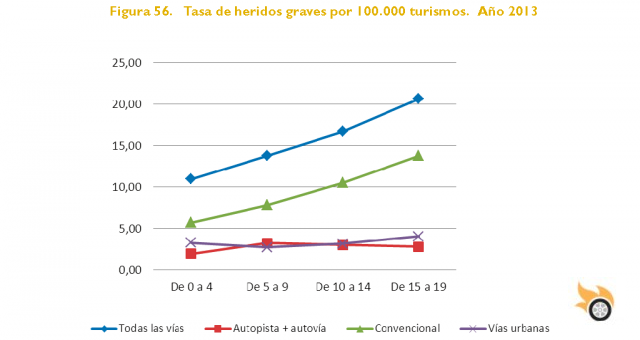
In older cars, maintenance is very important, because it is maintenance that allows them to maintain the safety features of the car when it was new, and depending on the parts, even improve those features. Of course, I am referring to parts that are equivalent to the standard ones, not to components that improve braking, suspension or dynamic behaviour. Then we would enter the nightmare of homologations, and that if you are not an enthusiast with a lot of money, it is not worth it.
It is easier to pass the ITV with original components in bad condition, than with improved components that have not obtained a specific homologation in our technical data sheet.
I consider perfectly capable to the ITV workers when it comes to distinguish a tuner who does not know what he is doing, who has improved the car using spare parts designed specifically for that model. Another thing is that they want to do it, or that the Ministry of Industry lets them do it.
If they are throwing in the inspections to people who have the car as it left the dealership, but with an exotic kit, is that I've seen enough about the procedure of the ITV in this country. A joke, and I'm sorry for anyone who is offended. The opposite extreme is the Japanese MOT, the dreaded "shaken", and all the cars you see in the street are impeccable and have no obvious signs of age.
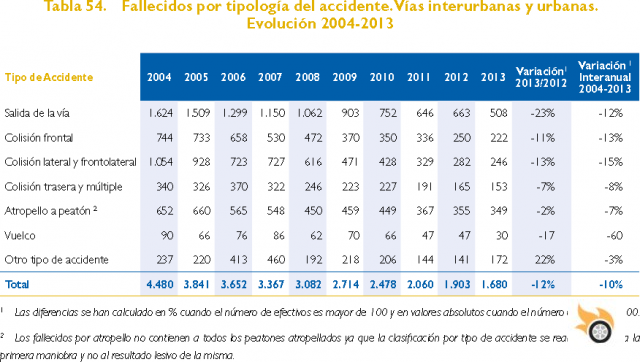
If there is a real eagerness, from the Administration, to make people kill themselves less, they should rather look at the following lines of action:
- The road safety education of drivers, and the lack of road safety education as well.
- The state of the roads should be optimal by law (and if it already exists, it should be complied with).
- Technical inspections fair, rigorous and focused on road safety, not to collect money.
It is clear, if we go in safer cars (compared to poorly maintained ones), we drive more responsibly and we are not victims of problems in the road network, we will save more lives than putting a radar on every corner. Of course, less money will be collected, and it will be necessary to spend to improve these three areas of action, but those who pull the strings seem to have decided what is most profitable.
I know what it's like to drive an old car, I have one that's 25 years old. Logically it does not go the same with shock absorbers with more than 100,000 km than with new ones, nor with standard brakes than with boosted ones, nor with expired tires (but with tread, which is what the Guardia Civil will look at) compared to new ones. With modern parts, the car can go better than when it was new, but you have to spend money and the staff does not have so much available.
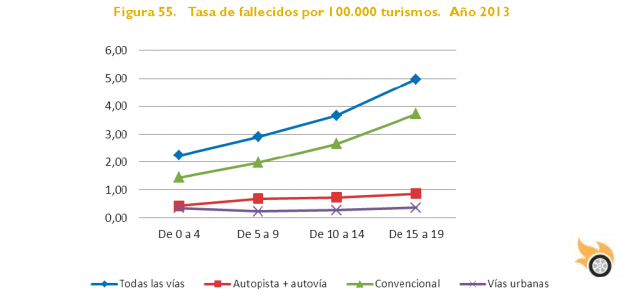
With the crisis, the useful life of cars has been stretched, not always in the best way, not because of taste, but because of lack of liquidity. If we are basing the economic model in throwing wages and reduce the purchasing power of people, what are we surprised? According to Adecco, a temporary employment company, what will be most in demand this year are: "Waiter for banquets or events, telemarketer with languages and sales experience, shop assistant and warehouse boy."
Many of them will have university degrees, but will be paid a pittance. Surely with the huge salaries that these workers are going to receive, they will be able to get into a new car loan and throw their cancer for road safety to the scrap heap. The problem will come when they do not renew them, to see what they do with the car ... Gentlemen, we are approaching the problem wrong.
The Spanish are not a special country in which we like to use cars in bad condition, it is a mixture of yes, lack of car culture, and lack of cash as well.
We are fried with taxes, with a very high tax burden, with precarious salaries and a climate of growing job instability. When we see a man who has been in the same company for more than 20 years or a civil servant, we think we have had an encounter in the third phase, it can only be an alien!
Effects of labor reform: in Spain is charged on average 5.9 € less per hour than in the EU http://t.co/nI65ga6wI2 pic.twitter.com/zRlap0juKF
- EL PAÍS Economía (@elpais_economia) April 14, 2015
I'm sick of reading these kinds of studies and their conclusions. Why are there so many old cars on the road? Because we do not have the same money in our pockets or joy to spend that we had in the boom years, when we were in the "champions lij" of the economy -Zapatero dixit- and people take their money the performance they can get out of it. And when the budget is dwindling, maintenance is neglected as long as the car is able to "walk". It will go to the mechanic when it breaks down.
I want to see a serious statistical study, in which you can see what is the state of the crashed cars, I do not care what era they are, and an opinion of experts and engineers about how much would have changed the percale in a car of the same segment, but of last generation.
There are accidents that cannot be avoided even by the best arsenal of sensors of today, and if you have it in an old car poorly maintained, you have a lot of chances to change neighborhood.
The same people who are accusing those of us who have old cars of being a public danger (with finer words) are putting Civil Guard cars up for auction, with starting prices similar to those of some LEGO boxes, with more kilometres than a transatlantic liner and with a state of preservation that leaves much to be desired. Aren't we agreed that they are dangerous cars? Shouldn't they therefore go to a scrapyard?
To me, that they explain it to me, every day I understand these people less and less.




